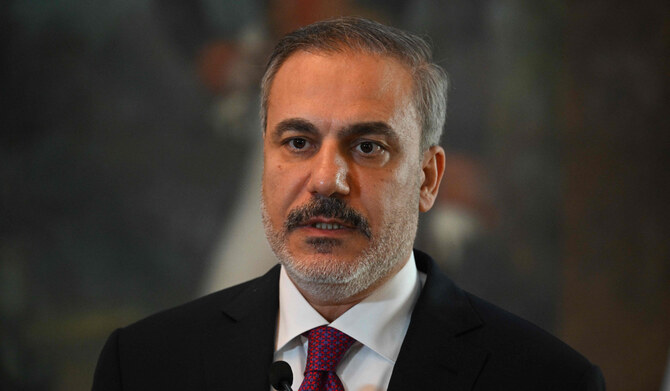Turkiye and the EU’s Middle East strategy

Relations between Turkiye and the EU entered a critical period in 2011 with the outbreak of the Arab uprisings, posing significant security challenges to both sides in a region with important strategic interests. The EU’s concerns even led the European Commission to launch a “Positive Agenda” in 2012 aimed at addressing common challenges in the Middle East through close cooperation with Turkiye. EU countries supported the initiative due to Ankara’s strategic importance in the region, saying Turkiye and EU countries could be stronger if they were united.
However, disagreements regarding each country’s position on regional development and the position of some EU countries on Turkiye’s possible EU membership prevented them from effectively cooperating and benefiting from this initiative. . However, despite political tensions and disagreements between Turkish and EU leaders, Ankara cooperated with Brussels on important security issues throughout this period.
Turkish Foreign Minister Hakan Fidan said on Monday that Turkiye should integrate with Europe to build a more effective power in the region, which would also make the EU more resilient to regional and global challenges. did. Turkish policymakers believe that if Turkiye had been granted full EU membership in the early 2000s, the golden age of Turkish-EU relations, Europe would have been more integrated and had a stronger security architecture. are.
Given its established position in the Western security architecture, advanced defense industry, and proven military capabilities, Turkiye is well placed to strengthen Europe’s security architecture. Escalating security threats, from Russian aggression to instability in the Middle East, are further evidence of Turkiye’s critical role in supporting European security.
In light of this reality, President Fidan called for a shift in the relationship between Turkiye and the EU, calling for a return to the “pre-Sarkozy” era. This is a reference to former French president Nicolas Sarkozy, who served as president of France from 2007 to 2012. Leaders like Mr. Sarkozy, who insisted that Turkiye did not belong to Europe, increased skepticism among Turkish elites and increased anti-EU sentiment among the population. Clearly, identity politics has continued to hinder Turkiye-EU relations, and changes in political leadership across EU member states over the years have not translated into fundamental shifts in core policies towards Turkiye membership.
The EU should abandon its hypocritical position and recognize Turkiye as an important partner for cooperation.
Dr. Sinem Cengiz
Furthermore, Turkiye’s tactical hedging, such as his approach towards BRICS and the Shanghai Cooperation Organization, has further deepened suspicions within the EU. Prime Minister Fidan has previously made it clear that Turkiye is not interested in joining these organizations if it is already an EU member state. This shows that the Turkish government is not seriously seeking to join them. Despite ongoing tensions with the EU, Turkiye’s geostrategic position is forcing it to seek closer cooperation with Europe. Next, the EU should abandon its hypocritical position and recognize Turkiye as an important partner for cooperation.
In the post-uprising era, it was the EU that sought cooperation from Turkey in the face of regional challenges, rather than the other way around. In March 2016, the EU also signed an agreement with Turkiye aimed at stemming the flow of irregular migrants to Europe via Turkiye. However, this agreement failed to bring the expected results to Türkiye-EU relations.
The Turkish government is currently seeking improved relations with the EU on a constructive and results-oriented basis, especially after European Commission President Ursula von der Leyen’s visit to Ankara last month, with both sides resuming high-level political dialogue. It shows an intention to do so. . Fidan announced that they had agreed in principle to hold a Turkiye-EU summit in 2025 to coordinate how to move forward on all these issues. On Thursday, Fidan also welcomed Belgian Bernard Quintin as its first guest of the year. They discussed recent developments in Syria, the war in Ukraine, and Turkiye’s accession to the EU.
New opportunities are opening up for the EU to cooperate with Turkiye. So why is having Mr. Turkiye on board key to the EU’s regional strategy?
Syria, where the fall of the Assad regime previously fundamentally changed the dynamics of Turkiye-EU relations, could be an important starting point for cooperation. The fall of the Assad regime last month marked a turning point for Syria, with far-reaching implications not only for the region but also for Europe.
After consultations with Turkish leaders, von der Leyen said the EU intends to step up engagement with the new authorities that ousted President Bashar al-Assad. Syria is a focus for both Turkiye and EU member states. Ankara is likely to emphasize that this is a historic opportunity for Syria and could be a turning point for both regional stability and European security.
Syria’s new government needs international support to rebuild the country and safely return refugees. There is no doubt that the issue of returning Syrian refugees will be at the center of political debate in Europe. These are times of considerable uncertainty in Syria and the region as a whole, but also a unique opportunity for cooperation.
Rather than focusing solely on short-term plans for refugee repatriation, Europe should prioritize support for Turkiye to help rebuild Syria and recognize the successful integration of Syrians who wish to remain within the EU. This strategy can only be achieved through close cooperation with Turkiye, who has emerged as a central figure in the post-Assad era.
• Dr. Sinem Cengiz is a Turkish political analyst specializing in Turkiye-Middle East relations.
X: @SinemCngz
Disclaimer: The views expressed by writers in this section are their own and do not necessarily reflect the views of Arab News.


